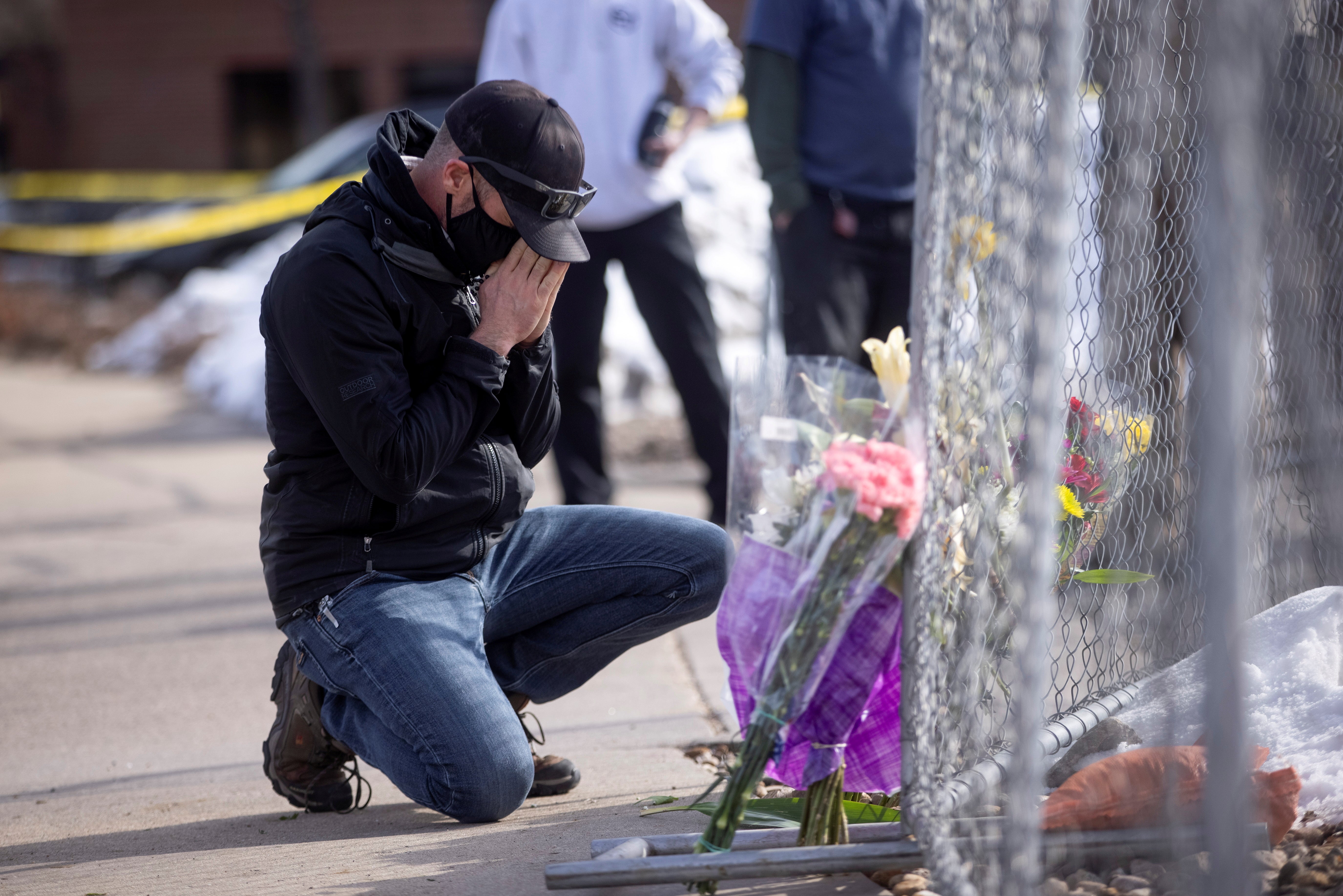All mass shootings are terrorist acts. Why can we still not say it?
‘I just nearly got killed for getting a soda and a bag of chips’


I was four years old when a gunman killed eight people in a GMAC office in Jacksonville, Florida. I was 13 when two boys killed twelve students and a teacher at Columbine High School. I was 26 for Newtown, 30 for Pulse, 32 for Parkland.
I am 35 for Boulder. Perhaps because the pandemic has given us a seeming reprieve from such events, watching coverage of the latest mass shooting has been harder than usual. Of course, none of it should be “usual”. But the fact is that mass shootings are “something I’ve grown up with,” as one young man who survived the Colorado attacksaid. “People my age, my generation, are used to this,” he added.
Another young man, Ryan Borowski, choked back tears as he told a reporter, “I just nearly got killed for getting a soda and a bag of chips.”
If this were Northern Ireland, three decades of unmitigated violence against civilians would be called The Troubles. Because this is the United States, we call it Tuesday. Mass shootings are as American as apple pie, and now two generations of Americans — millennials like myself and Gen Z like the kids at Parkland and the young men referenced above — have been scarred by gun violence.
During lockdown, I would often joke that all I wanted was to sit in a coffeehouse with only the fear that a lone gunman, and not a virus, would kill me. That joke is only funny because of how true it is. Each of the places mentioned above is somewhere I have, at one time or another, frequented. I was an elementary school student, a high school student, a college student. I worked for lenders like GMAC, I’ve danced at gay clubs like Pulse, I’ve shopped at supermarkets like King Soopers. It could just as easily have been me as it was any one of the countless victims of gun violence.
For one terrifying moment, I thought it was.When I was 22, there were fears of a mass shooter on my campus. It was the year after 33 people were killed at Virginia Tech, and I knew the score: my classmates would be shot, people would die. It was a false alarm, thank God, but the fear was real.
Which is perhaps why the clips of the young men, terrified and visibly shaken after staring down the barrel of American apathy, resonated so much with me. I do not know what it is like to survive a mass shooting, but I do have some idea of what it is like to fear you are experiencing one. None of my friends died that day. So many others my age and younger cannot say the same.
Millennials grew up watching first our parents, then our peers, and now our children being gunned down. Since the 1990s, this nation has been held hostage by the gun lobby and far-right groups which view any form of gun control as an act of war. They have used gun shows to spread far-right ideology — Oklahoma City bomber Timothy McVeigh used to travel the gun show circuit selling the white supremacist novel The Turner Diaries — and used opposition to gun control as a means of attracting people to the far-right militia movement and other hate groups.
As Daniel Levitas wrote in his seminal work on the militia movement,The Terrorist Next Door, the far-right in the 1990s used events like Ruby Ridge and Waco, along with the passage of the Brady Bill — which required federal background checks for gun sales except for sales by private owners — as “clear proof that federal bureaucrats intended to disarm Americans in preparation for a communist-style takeover by the New World Order.” We fail to act because the perpetrators are often seen as “lone wolves,” viewing each shooting as an “isolated incident,” but their access to weapons, and often their motives, are so often similar, and the problem is structural. We don’t know this particular shooter’s reasoning, but we know the context from which he sprung.
“It doesn’t feel like there’s anywhere safe anymore,” Ryan Borowski, that young man who just wanted to buy a snack, told a reporter. He’s right. It doesn’t feel like there is anywhere safe anymore, because there isn’t. We can’t go to work. We can’t go to school. We can’t dance in a club or shop in a grocery store or walk down the street without the fear that some angry man with a chip on his shoulder and an AR-15 might kill us for the crime of existing. If that isn’t terrorism, I don’t know what is.
Join our commenting forum
Join thought-provoking conversations, follow other Independent readers and see their replies
Comments